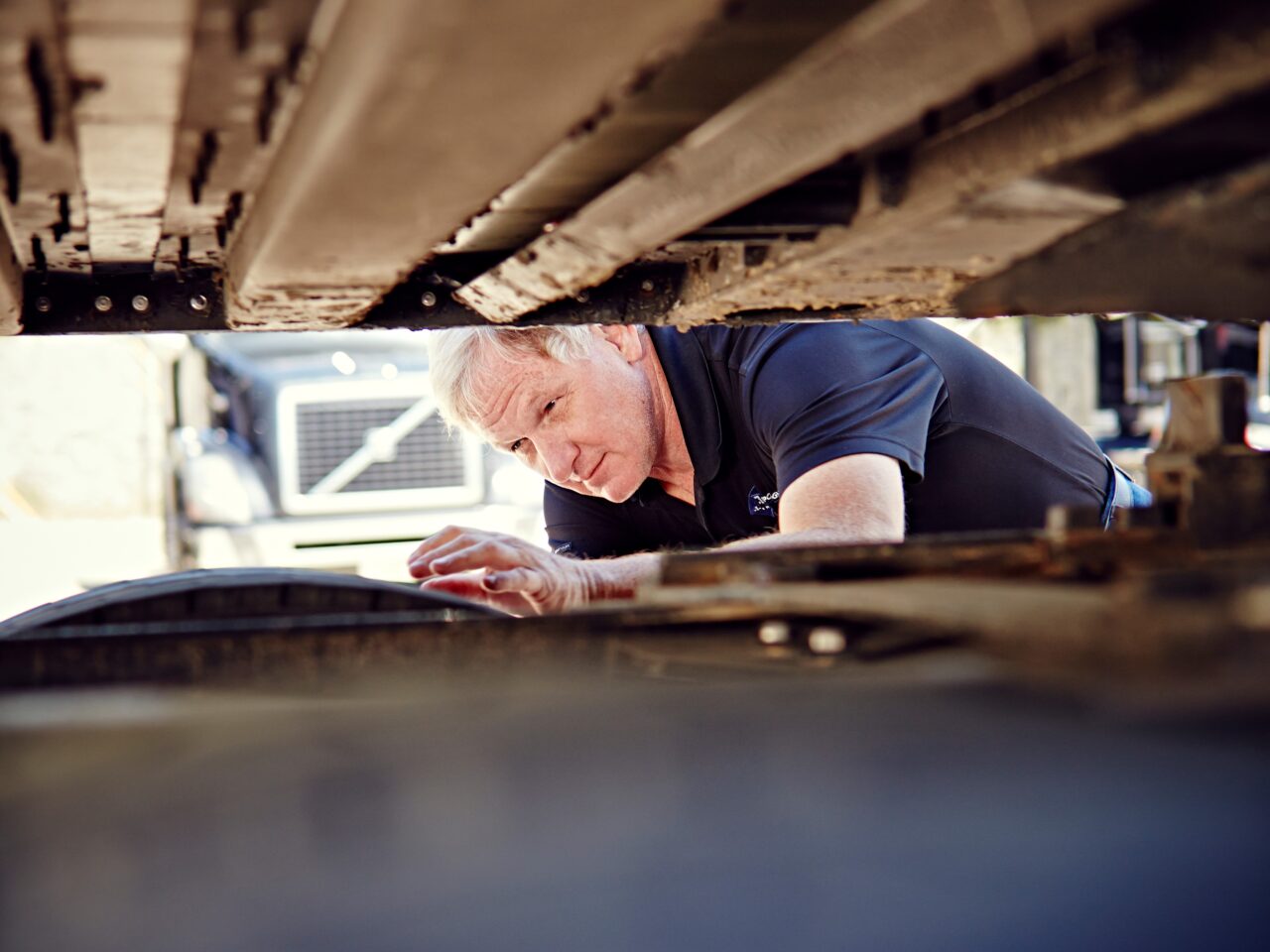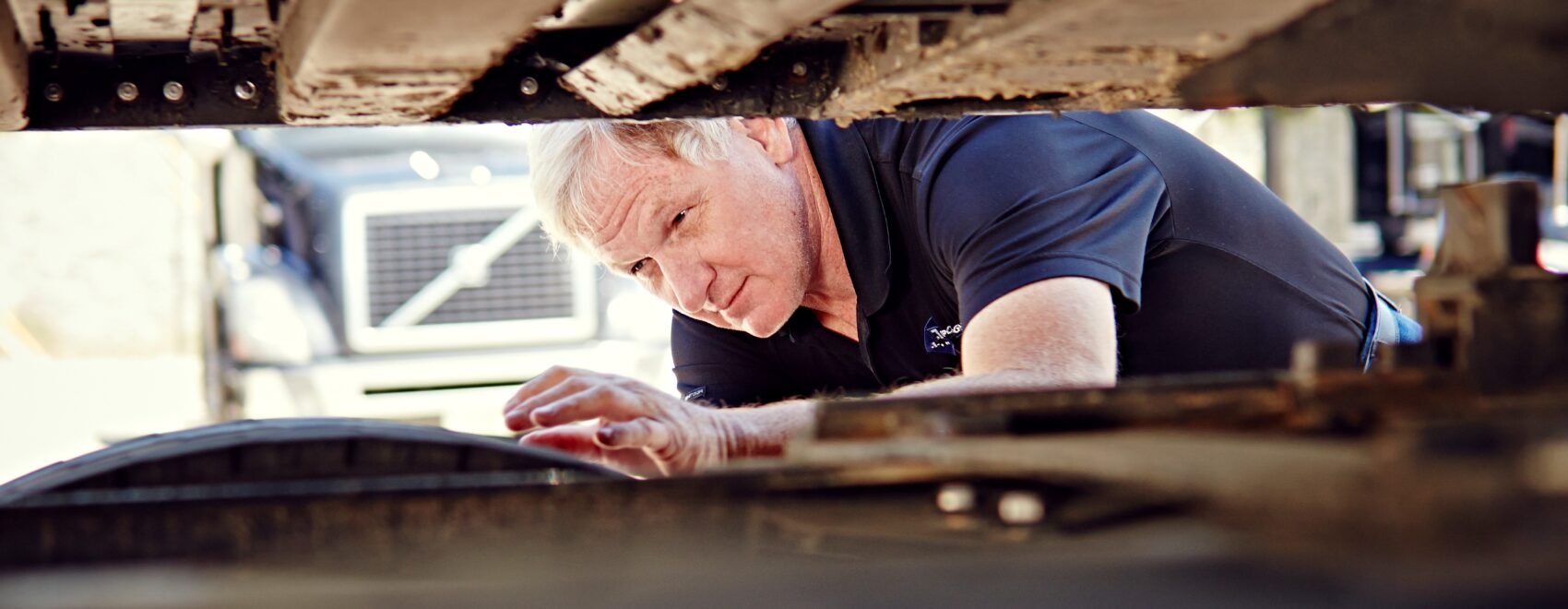Damaged, malfunctioning or worn-out brake systems can put truck drivers and the people they share the road with in danger. To highlight the importance of brake systems, the Commercial Vehicle Safety Alliance (CVSA) recognizes Brake Safety Week every year.
CVSA commercial motor vehicle inspectors will be conducting inspections August 20-26, 2023. Trucks that are found to have brake-related out-of-service violations will be removed from the roadways until they are fixed.
To help ensure your truck’s brake system is functioning properly this Brake Safety Week (and every week), CPC Director of Safety Isaac Harmon offers these recommendations.

Conduct a thorough inspection.
Confirming that your brakes are functioning properly is a critical part of your pre-trip inspection. Be sure to:
- Check for missing, non-functioning, loose, contaminated or cracked parts on the brake system.
- Check for S-cam rollover.
- Be alert for audible air leaks around brake components and lines.
- Check that slack adjusters are the same length (from center of S-cam to center of clevis pin), and the air chambers on each axle are the same size.
- Ensure the air system maintains air pressure between 90-100 psi (620-690 kPa).
- Inspect for non-manufactured holes (rust holes, holes created by rubbing or friction) and broken springs in the spring brake housing section of the parking brake.
- Measure pushrod travel.
- Inspect required brake system warning devices such as ABS malfunction lamps and low air pressure warning devices.
- Inspect the tractor protection system, including the bleed back system on the trailer.
- Ensure the breakaway system is operable on the trailer.
Avoid the common causes of brake issues.
Understanding the things that increase the likelihood of brake problems can help prevent them. These include:
- Failing to perform your pre-trip inspection. Not properly maintaining your truck can not only cause brake issues, but also worsen them over time.
- Braking too hard, especially when going downhill. Use the brake intermittently instead of pushing on it for a long period of time.
- Airline damage such as cracks, tears, breaks or worn-down areas.
- Brake lock, which happens when the brake shoe on your truck becomes stuck. Sluggish acceleration is a common result of brake lock.
- An uneven load that does not properly distribute weight throughout the trailer.

Know the symptoms of brake failure.
Be aware of the following signs your brakes may be failing:
- A high-pitched squealing sound coming from your brakes is a good indicator your brake pads need replacement.
- Grinding in your brakes may mean your brake pads have disintegrated.
- Braking vibrations can be the result of warped rotors.
- If your truck pulls to either side when you use the brakes instead of moving straight ahead, an uneven brake pad wear or an issue with the air brake line may be to blame.
- A brake pedal that quickly falls to the floor when you press down indicates your brake pads are worn out or your air brake line is leaking.
If you experience any of these symptoms, take your truck to a repair facility immediately. Brake issues that arise on the road are an emergency and addressing them must be your priority.
Be prepared for brake failure.
Complete brake failure is unlikely, especially if your truck is being properly maintained. However, take these steps in case the situation arises:
- Downshift to slow down.
- If you are on a downgrade, look for runaway truck areas to drive toward.
- If there are no runaway truck areas, look for another way out such as the shoulder of the road or an open field.
- Use the emergency brake to stop the truck but do so slowly to prevent the wheels from locking up.
For more information about Brake Safety Week, including inspection procedures, visit the CVSA website.

